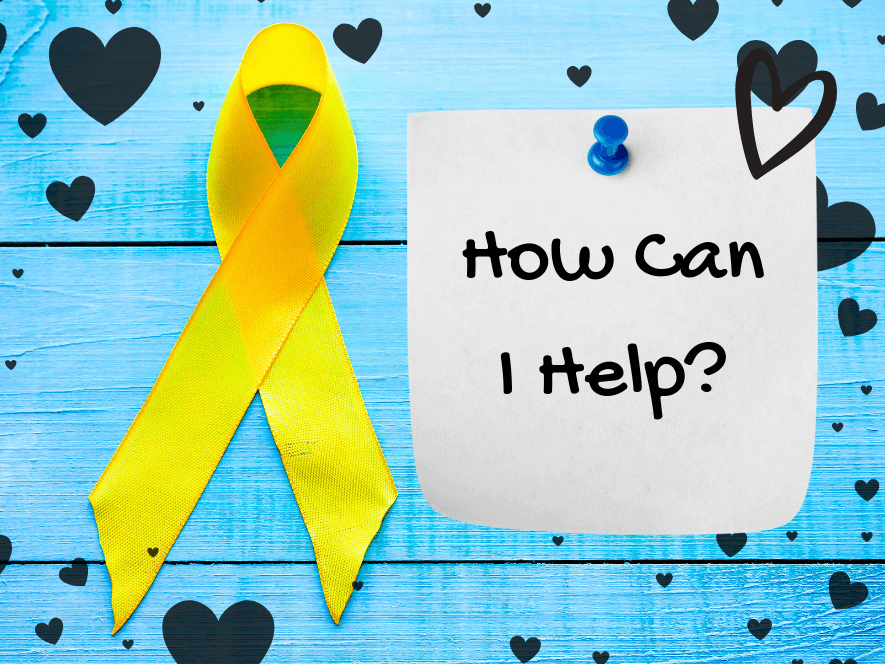Suspecting a friend or loved may be suicidal is a scary realization.
You may feel afraid, confused, helpless, and desperate to help. Fortunately, there are immediate ways you can help a friend who you suspect is suicidal, including calling the suicide prevention hotline at 1-800-273-8255.
Keep an eye out for telltale warning signs of the suicidal thoughts listed below. You can also ask a friend several questions that are neither confrontational nor assuming while showing general concern. Finally, there are many resources to pass along to your friend or help them access with your support.
If you sense these warning signs of suicide, taking immediate action is always the safest decision.
Warning Signs of Suicide
The American Foundation for Suicide Prevention provides a comprehensive guide for spotting the signs and symptoms of suicidal thoughts. These include:
- Talking about suicide, having no reason to live, or being a burden to others
- Expressing feelings of unbearable pain, hopelessness, or a feeling of being trapped
- Increased drug or alcohol use
- Withdrawing from activities
- Isolating from friends and family
- Visiting or calling others to say goodbye
- Dramatic changes in sleeping habits
- Giving away valued possessions
- Obtaining the means to commit suicide, such as a gun or a large number of pills
- Displaying a change in mood toward depression, anxiety, irritability, anger or aggression, or shame
- Suddenly appearing relieved or improved
There are also several risk factors for suicide. If you’ve sensed any of the above changes in a friend, also consider their current circumstances. If they’ve gone through or are currently going through any of the events below, they could be at increased risk for suicide:
- Stressful life events like divorce, retirement, rejection, or the loss of a loved one
- Mental health conditions like bipolar disorder, schizophrenia, or anxiety disorders
- Severe physical health problems to include pain or lack of mobility
- Traumatic brain injury
- Substance abuse issues
- A history of child abuse, neglect, or trauma
- Family history of suicide or severe mental illness
- Past suicide attempts
What Can I Do to Help?
The proper response depends on the symptom’s severity. However, even if you only have the faintest suspicion that your friend may be suicidal, it’s important and appropriate to take action.
Start by asking direct yet gentle questions. Always stick to empathetic statements, such as, “What you’re going through must be difficult,” or “You’ve seemed down lately.” Give them a chance to respond, then ask a question such as one of the following:
- How are you doing with everything going on?
- Do you feel like you can handle what’s happening?
If your friend responds with troubling feelings, ask:
- Have you had thoughts of hurting yourself?
- Is suicide something you’ve ever thought about?
- Do you know when or how you’d commit suicide?
Many people believe that by asking whether someone is suicidal, you’re placing the idea in their head. However, bringing up the topic of suicide doesn’t inspire someone to do it. You are simply giving them the chance to express their thoughts and feelings. They may even be relieved you aren’t shying away from the topic and that you understand the severity of their depression.
If your suspicions are confirmed, you should assist them in getting help as soon as possible. Below are a few ways to go about doing so:
Encourage Them to Call the Suicide Hotline
1-800-273-TALK, or 1-800-273-8255, allows you to reach the National Suicide Prevention Lifeline. This helpline offers 24/7 crisis line support and a live person who will talk you through what you’re feeling and get you the help you need.
Talk to Your Friend About Treatment Options
Encourage them to speak to a mental health professional or doctor. Refer them to agencies that you know of and methods of treatment that may help. Talk therapy and newer, evidence-based therapies like Transcranial Magnetic Stimulation (TMS) are providing hope and healing to many who struggle with depression and suicidal thoughts.
Help Them Problem-Solve Ways to Stay Safe
If they have weapons or large amounts of medications, check if someone can lock them up. Discourage them from coping with depression in unhealthy ways like alcohol or drugs.
Always Stay Supportive and Reassuring
Remind them as often as needed that things will improve and that you are there to support them. Continue asking them questions about how they’re doing and always validate their feelings.
What Not to Do
There are a few things to avoid while helping a person who may be suicidal:
Do Not Be Judgmental, Negative, or Insensitive
This sounds easy, but there are many ways you could do accidental harm. Don’t tell them their situation could be worse and don’t offer simplistic advice such as, “Just look on the bright side.” These may invalidate someone’s feelings.
Don’t Tell Them You’ll Keep Their Suicidal Feelings a Secret
If you learn your friend is suicidal, you need to do whatever it takes to keep them safe. This may mean contacting their loved ones. It might even mean contacting the police if you know they’re in immediate danger. Taking these actions may upset your friend, but it is important to reiterate that professional help is necessary for these moments.
Don’t Try to Take the Place of a Professional
No matter how pure your intentions or even how qualified you may be, you can’t be your friend’s therapist. Your friend needs a trained therapist or physician who doesn’t have a personal connection to him or her.
Getting the Help They Need
It is completely normal to question the best way to help a suicidal friend; every situation is different. The most important thing is that you show care and concern to act quickly. By lending an ear and offering resources like the ones above, you’re giving desperately needed support and making a world of difference.
For more information about the relief from depression that Success TMS can provide, contact us today.








